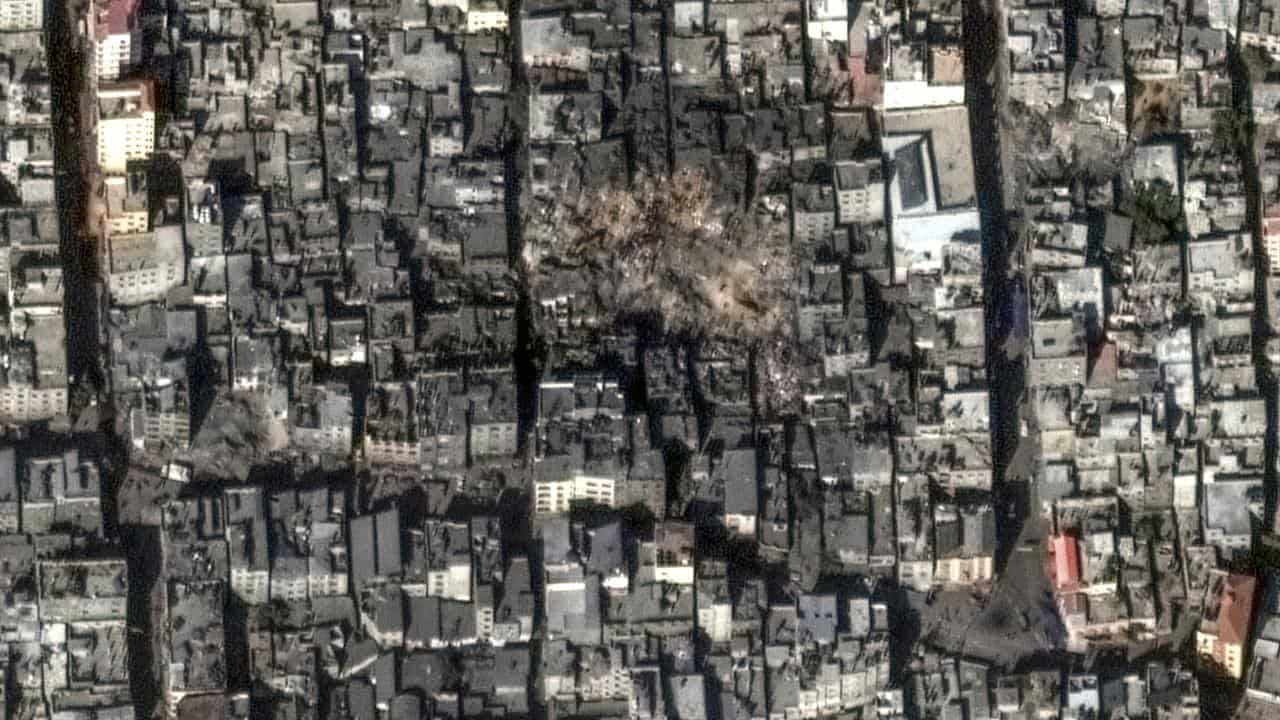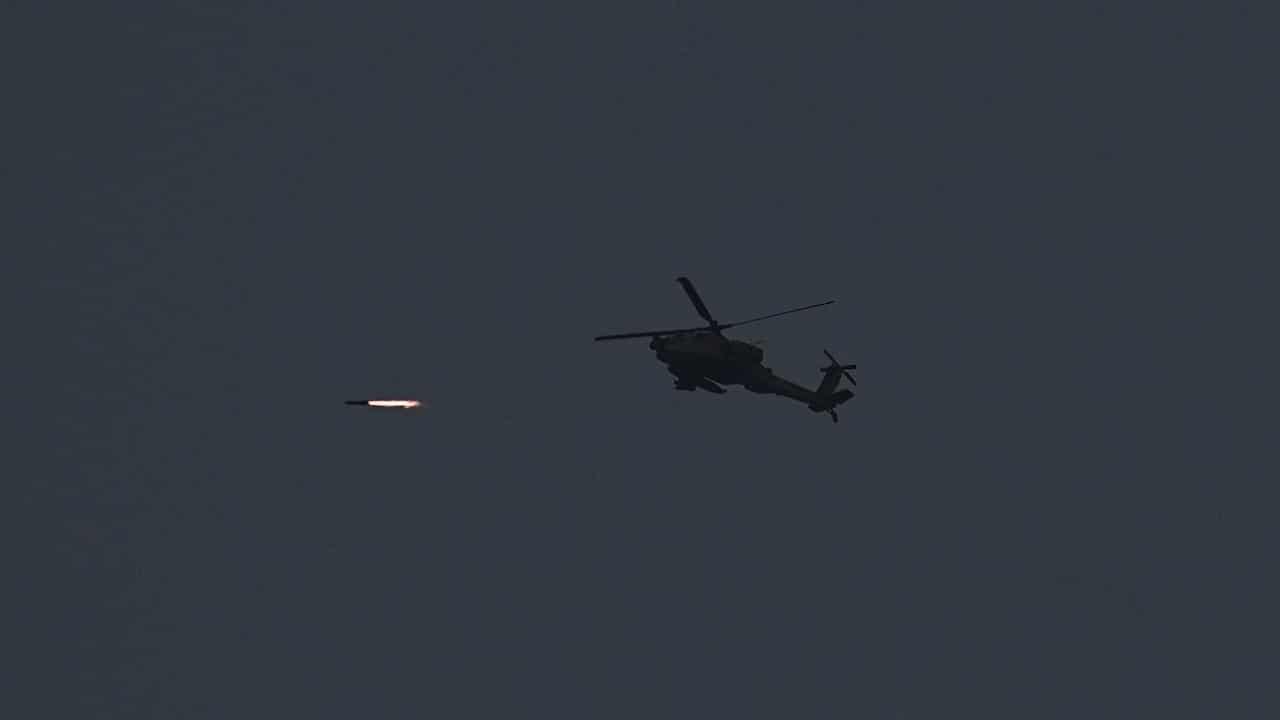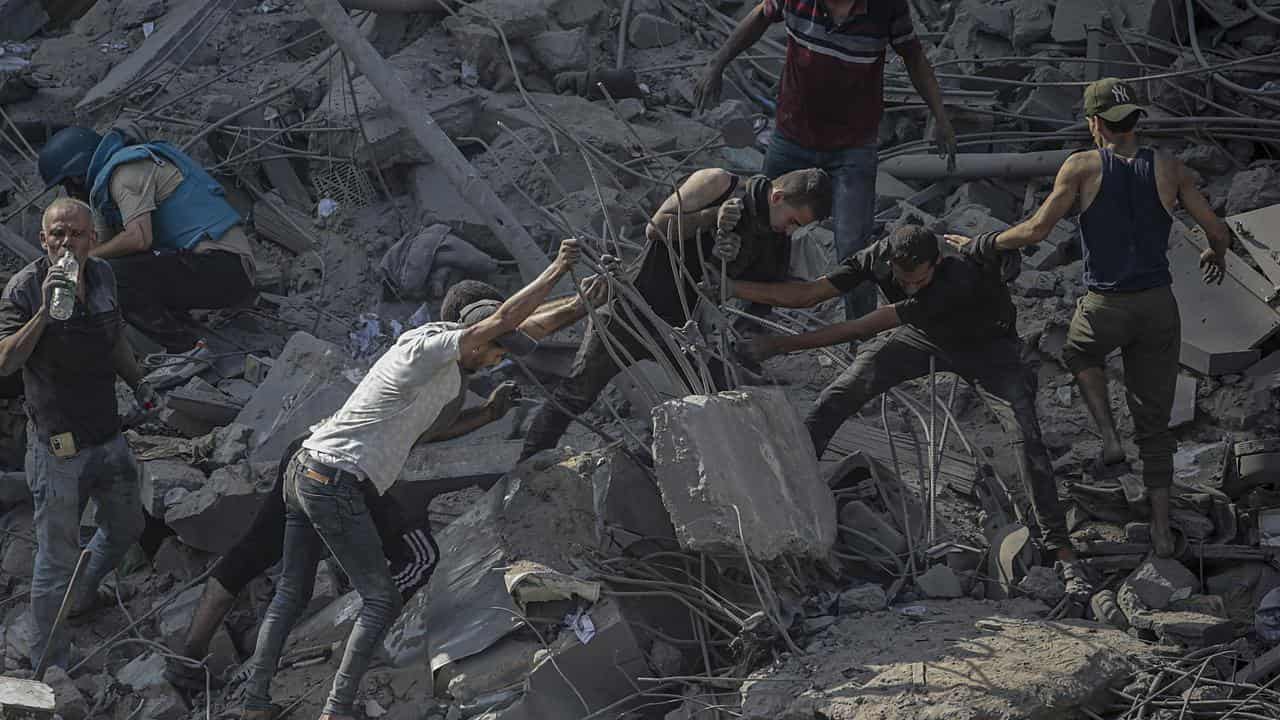
Israeli tanks and troops have pressed towards Gaza City but met fierce resistance from Hamas fighters using mortars and hit-and-run attacks from tunnels as the Palestinian death toll from nearly four weeks of bombardments mounted.
The war is closing in on the Gaza Strip's main population centre in the north, where the Islamist group is based. Israel has been telling people to leave the area as it vows to annihilate Hamas once and for all.
"We are at the gates of Gaza City," Israeli military commander Brigadier General Itzik Cohen said.
The latest war in the decades-old conflict began when Hamas fighters broke through the border on October 7. Israel says they killed 1400 people, mostly civilians, and took more than 200 hostages in the deadliest day of its 75-year history.
Israel's ensuing bombardment of the small Palestinian enclave of 2.3 million people has killed at least 8,796 people, including 3648 children, according to Gaza health authorities.
Though Western nations and the United States in particular have traditionally supported Israel, harrowing images of bodies in the rubble and hellish conditions inside Gaza have triggered appeals for restraint and street protests around the world.
Israel's right-wing Prime Minister Benjamin Netanyahu knows, however, that his career and legacy depend on crushing Hamas.

After a total blockade of Gaza for more than three weeks, foreign passport-holders and some severely wounded people were being allowed out at the southern end.
Passport holders from Australia, Austria, Bulgaria, the Czech Republic, Finland, Indonesia, Italy, Japan, Jordan, the United Kingdom and the United States were in the evacuation.
US Secretary of State Antony Blinken will travel to Israel and Jordan on Friday, the State Department said. He will meet Netanyahu for an update on Israel's military objectives, it said.
With Arab nations increasingly vocal in their outrage at Israel's actions, the UN High Commissioner for Human Rights also expressed concern that Israel's "disproportionate attacks" may constitute war crimes.
Israel says it has lost 17 soldiers and killed dozens of militants since ground operations were expanded on Friday.
Violence has also spread to the occupied West Bank, with Israeli military raids to arrest suspected militants touching off confrontations with gunmen and people throwing stones.

Palestinian medics and the health ministry said three teenagers and a 25-year-old were killed there in clashes on Thursday. Israel's army had no immediate comment.
Separately, the military and medics said Palestinian gunmen killed an Israeli motorist in the West Bank. There was no claim for that from Palestinian factions.
As international calls for a "humanitarian pause" in hostilities go unheeded, Palestinians are suffering shortages of food, fuel, drinking water and medicine. Sewage is leaking, some are drinking salt water and the trickle of aid permitted in by Israel is a tiny proportion of what is needed.
"We open our eyes on dead people and we close our eyes on dead people," said Dr Fathi Abu al-Hassan, a US passport holder waiting to cross into Egypt.
Hospitals, including Gaza's only cancer hospital, are struggling due to fuel shortages. Israel has refused to let humanitarian convoys bring in fuel, citing concern that Hamas fighters would divert it for military use.
"The situation is beyond catastrophic in the hospitals in Gaza," said the charity Medical Aid for Palestinians, describing packed corridors, dwindling fuel, refugees in the courtyard and many medics themselves having lost homes and loved ones.
Ashraf Al-Qudra, a spokesperson for the Gaza health ministry, said the main power generator at the Indonesian Hospital was no longer functioning.
The hospital was switching to a back-up generator but would no longer be able to power mortuary refrigerators and oxygen generators.
"If we don't get fuel in the next few days, we will inevitably reach a disaster," he said.




